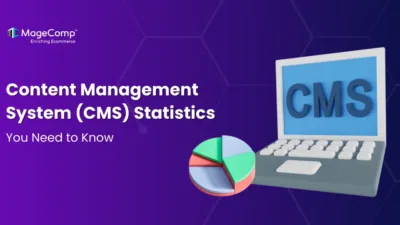Everyone dreams of running their own business, but in reality, running your business is a lot more than you can even think of. Today, in this article, we will be discussing the most important topic: gross income.
Before going any deeper into this topic, let’s take a look at an example to understand more about it. Let’s assume that you own a cafeteria where you sell coffee, snacks, and other beverages. Every day, you sell the products and the money that you have earned from the selling, before deducting the expense is called gross income.
Whether you are an individual or a business owner, you need to understand what gross income is and how to manage your finances accordingly.
Understanding Gross Income
Gross income means the total earnings of an individual or business before any taxes or deductions are taken out.
Individuals’ gross income consists of everything from wages, salaries, bonuses, tips, rental income, and investment earnings.
If you are running a business, it is the overall revenue taken from sales or services and not from the cost of the goods sold and also other operating expenses.
One of the most important aspects to understand is gross income because it makes one’s earning potential even clearer whether you are working for yourself or the company-paid money.
Gross income can effectively make individuals and businesses assess their budgets, determine what they are subject to tax liabilities, and, by the way create realistic financial targets. This figure gives a historical look at finances before deductions.

In addition, gross income acts as an important baseline to measure earnings and can be used to determine net income and earned income. It is important to both individuals and companies to provide the basis for responsible financial management.
Gross Income Vs. Net Income
Gross income is the total taken before any deductions; net income is the total taken after all expenses and deductions. Let’s say gross income = starting point and net income = take home or profit.
| Aspect | Gross Income | Net Income |
| Definition | Total earnings before any deductions or expenses are subtracted. | Earnings remain after all deductions like taxes and expenses. |
| What does it include? | Salary, bonuses, commissions, rental income, dividends, etc. | Gross income minus taxes, insurance, retirement contributions, etc. |
| Purpose | It shows the overall earning potential of an individual or a business owner. | It reflects actual take-home or usable income earned by an individual or any business. |
| Calculation | Basic salary + additional income sources (bonuses, overtime, etc.) | Gross income – deductions (taxes, benefits, etc.) |
| Tax implication | Used as the base figure for calculating taxes. | Represents income available after taxes are paid. |
| Relevance | Useful for budgeting, loan applications, and credit evaluation. | Important for understanding personal spending capacity and savings. |
How to Calculate Gross Income?
Calculating gross income is straightforward, but the methods of calculating each income are different.
Individual’s Gross Income
Gross income for an individual refers to the total income earned before any taxes or deductions. This typically includes wages, salaries, bonuses, and other forms of earnings.
Formula:
Gross Income = Salary/Wages + Bonuses + Tips + Other Income (rental income, investment income, etc.)
Components:
- Salary/Wages: Total annual earnings from employment.
- Bonuses: Any additional compensation from your employer.
- Tips: Gratuities received if applicable.
- Rental Income: Income from properties rented out.
- Investment Income: Dividends, interest, or capital gains.
- Other Income: Alimony, royalties, pensions, etc.
Example:
If you earn $50,000 in salary, $5,000 in bonuses, and $3,000 from rental income:
Gross Income = $50,000 + $5,000 + $3,000 = $58,000
Business Gross Income
Gross income for a business refers to the total revenue earned before subtracting any business expenses except the cost of goods sold (COGS).
Formula:
Gross Income = Total Revenue – Cost of Goods Sold (COGS)
Components:
- Total Revenue: All income generated from sales or services.
- COGS: Direct costs of producing goods or services sold (materials, labor, etc.).
Example:
If a business has $200,000 in total sales and $70,000 in COGS:
Gross Income = $200,000 – $70,000 = $130,000

Frequently Asked Questions
- What is gross income, and how is it different from net income?
Gross income is the entire earnings or revenue eclipsed tax installmentations, retirement installations or whatever fees it may be. Net income, however, is the amount left after all deductions are subtracted from income.
- What is included in gross income?
Wages, salaries, bonuses, dividends, interest income, rental income, and other gross income are all included in gross income.
- Are gross income pay deducted from pay?
So yes, gross income is calculated by removing all deductions like federal, state, retirement plan contributions, and healthcare premiums.
- Is taxable income, or is gross income?
That’s not gross income – gross income is total income; taxable income is income subject to tax after deductions and exemptions.
- What’s important to know your gross income for?
You don’t know that if you haven’t calculated your gross income, something which impacts your budgeting uses of loans or your ability to cultivate your credit card utilization based on your income. Furthermore, it’s important for evaluating financial health and making reasonable financial moves.
Final Say
The ability to have a clear picture of your gross income allows you to feel more confident about how to manage your finances, where to set realistic and achievable financial goals, and how to make good spending and saving decisions.
In addition, knowing how much you make in gross income clearly indicates your entire financial condition, telling you where you can improve or invest.
Another important role to play in arriving at financial stability and prosperity is recognizing the need for additional income streams, whether as part of preparing a complete budget for use or when assessing your business’s profit to ensure sustainable growth.
All in all, being familiar with the gross income and what it can mean for your future is part of reaching financial success over the long run.
To get knowledge about more such informative topics, stay tuned with us.
Thank you for reading!





